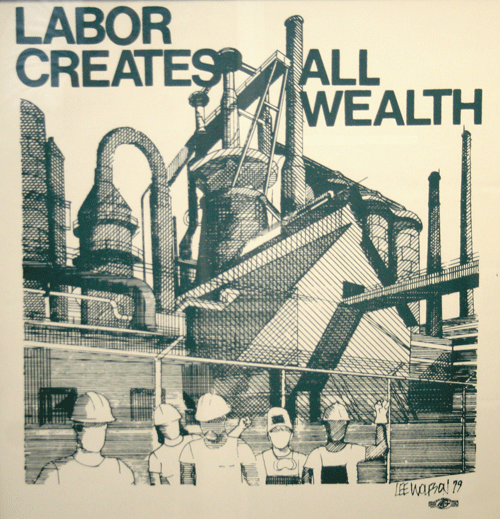Three years ago, Syriza refused an invitation by
Antonis Samaras (New Democracy/PASOK Coalition) to join them in a coalition government (see
here).
Why was Samaras interested in having Syriza onboard and why did Syriza refuse that?
Samaras presumably did not want to have an active and sizeable left opposition; Syriza presumably they did not believe the Coalition's policies would work and did not want to support them.
It was a good decision, too, as their electoral victory proves.
----------
A Syriza MP and professor of economics,
Costas Lapavitsas (h/t
Bill Mitchell), has given an interesting
interview to Jacobin.
In view of the rather clear failure of
Yanis Varoufakis' initial approach (which perhaps one could describe as the reasoned, polite, dialogue between elites), Lapavitsas says:
"[T]he obvious solution for Greece right now, when I look at it as a political economist, the optimal solution, would be a negotiated exit. Not necessarily a contested exit, but a negotiated exit."
That's a positive sign, and I believe this could sound good to the Greek Communist Party (KKE), too: after all, it was part of their platform (although it most definitely wasn't part of Syriza's platform, or Varoufakis' preferences).
However, the Greek people voted for Syriza and its platform, not for the KKE. Syriza did not campaign for a Grexit, the KKE did. It would take some humility and a public mea culpa from Syriza and a decided turn to the left to explain voters that their platform was mistaken and that the KKE was right all along, at least on that.
----------
This leads us to an unfortunate comment in Lapavistas' interview; apparently he resents the KKE not joining Syriza in a coalition government:
"What's at stake and what's at issue among the non-Syriza left is a fear of power. It masquerades and hides itself behind big words. In the case of the Communist Party, every other word is about workers' power."
Given that "Grexit" was one "big word" in the KKE platform, that it was right on that and Syriza wrong, Lapavitsas' attitude doesn't bode well. Perhaps a more sincere approach and a decisive move to the left would be more successful, otherwise, the same reasons against joining the Samaras Coaltion, will assist the KKE in not joining Syriza.
----------
As God is my witness, I understand the Syriza-led government's predicament. I wish them luck, too, if not for themselves, for the Greek people and the Greek left.
But the truth is that these guys have come up these last few days with really
dumb ideas. First it was
Panos Kammenos' threat of letting illegal migrants (including Islamist fundamentalists) free passage through Greece (Kammenos is not a member of Syriza, but of the right-wing Independent Greeks, junior Coalition partner).
Then it was the turn of
Nikos Paraskevopoulos, the Minister for Justice, to push forward the Nazi war crimes reparation button in such a way as to make sure their opponents had the claim those are "
acts of desperation":
"In Brussels, the endgame over Greece's continued euro-zone membership has begun. Greek Prime Minister Alexis Tsipras is trapped between his campaign promise to put an end to EU-imposed austerity and his rapidly emptying state coffers. Meanwhile, his government's tone has become increasingly shrill."
The Syriza guys are giving arguments to neo-Nazis and their fellow travellers all over the world (see comments thread
here). Don't you people have any advisors?



